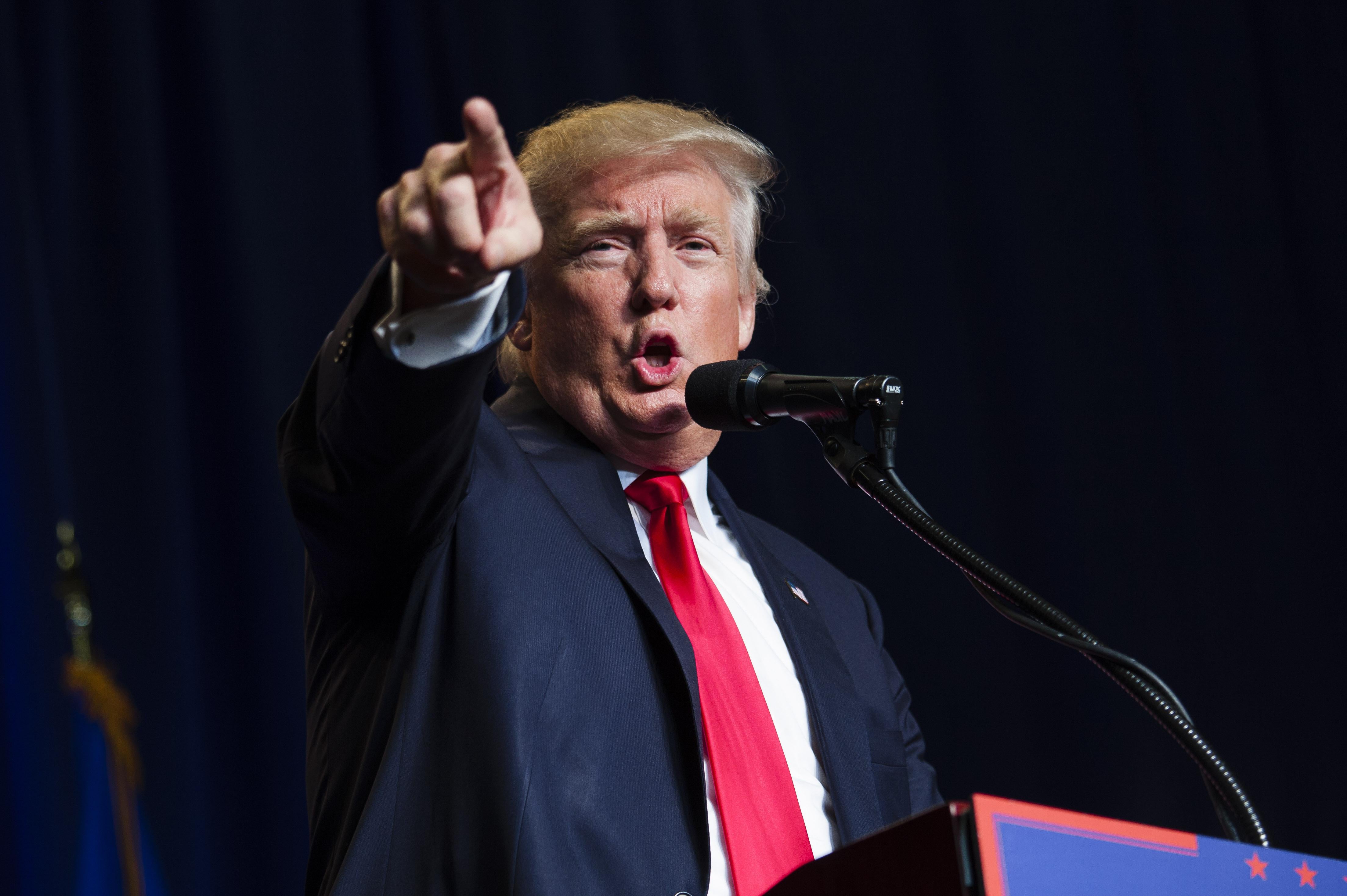This freaking guy:
A quick recap of Donald Trump’s alleged attempt at humor. “In many respects, you know, they honor President Obama,” the GOP nominee said at a Florida rally on Wednesday night. “He’s the founder of ISIS. He’s the founder of ISIS. He’s the founder. He founded ISIS.” Trump was then given multiple chances to walk back his comments Thursday morning but repeatedly passed, both during interviews with CNBC and with conservative radio host Hugh Hewitt, who has endorsed Trump and did just about everything he could to get his man to choose his words more carefully. “I know what you meant,” Hewitt told Trump. “You meant that [Obama] created the vacuum, he lost the peace.” To which Trump promptly responded: “No, I meant that he’s the founder of ISIS, I do.” Then, during a speech later that day, Trump declared: “I call President Obama and Hillary Clinton the founders of ISIS. They’re the founders.”
Trump had also been inching up to this specific outlandish ISIS claim for weeks. After the mass shooting in Orlando in June, he suggested that Obama was sympathetic to the terror group. During a 60 minutes interview in mid-July, he said, “Hillary Clinton invented ISIS with her stupid policies.” And just last week at a campaign rally he said that Clinton “should get an award from them as the founder of ISIS.” If this actually was all an attempt at sarcasm, Trump really committed to the bit. But, no, this wasn’t sarcasm; it was hyperbole—and a particularly hate-filled version of it at that.
As I wrote Thursday, Trump has built his campaign on (white) America’s fears of the other, and he’s trying to harness those fears by othering the sitting president of the United States by questioning his citizenship, his faith, and his loyalty to his own country. It doesn’t matter to Trump whether what he says is true or offensive. It only matters to him that he’s creating an illusion that his supporters have been primed to see from the moment conservatives—Trump chief among them—began to question the president’s birth certificate. In case there was any doubt that this is an actual strategy and not just a few ad-libbed lines gone awry, here is how Trump (and his ghostwriter) put things back in his 1987 book The Art of the Deal, in a section on self-promotion:
The final key to the way I promote is bravado. I play to people’s fantasies. People may not always think big themselves, but they can still get very excited by those who do. That’s why a little hyperbole never hurts. People want to believe that something is the biggest and the greatest and the most spectacular.
Three decades later, Trump’s running the same scam; the only difference is that he’s now using negative superlatives about his opponents in place of positive ones about himself. The GOP’s official talking points are that Obama is a bad president and that his foreign policy decisions in Iraq, Libya, and elsewhere have contributed to the rise of ISIS. But Trump needs his supporters to think bigger than that; he needs them to believe Obama is the most disloyal and most dangerous president there could ever be—and there’s no better way for him to do that then by creating a fantasy world where Obama is the actual founder of the most infamous terror group in the Western world at this particular moment in time.
About an hour or so after Trump deployed his sarcasm defense (once again), he returned to Twitter to take glee in the confusion that he—in his own telling—intentionally created:
That tweet, though, only confirms what we already knew: Trump made his ISIS-founding claim in the first place—and stuck to it under questioning—because he wanted the same media attention he’s now mocking. “No, it’s no mistake,” he told Hewitt on Thursday about the self-created controversy. “Everyone’s liking it.” When Hewitt later suggested that he personally would use “different language” to communicate Trump’s vague criticism of Obama and Clinton’s Middle East policies, the celebrity businessman became even more self-aware. “But they wouldn’t talk about your language,” he told Hewitt, “and they do talk about my language, right?”
